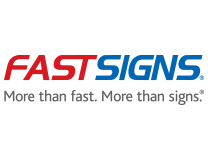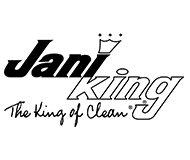By: Michael Lotito, Co-Chair, Workplace Policy Institute
On July 12, 2017, the U.S. House Committee on Education and the Workforce held a hearing concerning the need for legislation to redefine the joint employer standard. As many employers are aware, the interpretation of when employers constitute “joint employers” has been hugely expanded in the last few years by the Department of Labor, the National Labor Relations Board (NLRB), other regulatory bodies, and the courts. In the hearing, led by Chairwoman Virginia Foxx (R-NC), several witnesses highlighted the difficulties posed by the evolving joint employer standard, particularly for small businesses.
The rapid transformation of the joint employer standard began two years ago, with the NLRB’s August 27, 2015 ruling in Browning-Ferris Industries of California, Inc (BFI). There, the Board broadened the test for determining joint employment and assessing liability under the National Labor Relations Act (NLRA). The standard shifted from one where the employer exercised “direct and immediate” control over the other entity’s employees, to a much looser “indirect” or “potential” control standard.
The BFI holding—which is currently on appeal—upended decades of long-standing precedent. It also appeared to conflict with other Board guidance. In April 2015, for example, the Board issued an Advice Memorandum analyzing the relationship between a franchisee, Nutritionality, and its franchisor, Freshii, concerning the operation of a single casual restaurant in Chicago. In that guidance, the Board’s associate general counsel concluded that Nutritionality and Freshii were not joint employers, either under then-existing Board precedent or under the proposed standard that was adopted in Browning-Ferris months later.
Yet, as Representative Bradley Byrne (R-AL) pointed out in Wednesday’s hearing, the Board declined to clarify the applicability of the BFI decision to the franchise context earlier this year, despite a request from 13 House Democrats. By letter dated June 27, 2017, the current general counsel, a holdover from the Obama administration, stated only that the Freshii Memo “speaks for itself and, of course, should be read in light of subsequent developments,” including BFI.
Several witnesses testified as to the patchwork of joint employer tests applicable in varying scenarios. One witness asserted that at least 15 different standards are in play among the circuit courts, federal regulations, and agency interpretations. Mary Kennedy Thompson of Dwyer Group, testifying on behalf of the International Franchise Association, referred to the fact that both the Occupational Health and Safety Administration and the DOL's Wage and Hour Division released administrative directives expanding their approaches to joint employment since Browning-Ferris. Roger King, an attorney for the HR Policy Association, added that the EEOC’s interpretation of joint employment under Title VII involves a complicated 15-factor test.
Throughout the hearing, witnesses from the employer community consistently urged the House to craft a legislative solution to simplify the law on joint employment. Witnesses described how the shifting joint employment sands are hurting their business. Jerry Reese of Dat Dog in New Orleans, testifying on behalf of the Coalition to Save Local Businesses, explained how his plan to add franchises across the South is being hindered by the uncertainty involving the joint employer standard. He shared his concern that his company’s need to maintain brand standards in franchisees exacerbates the threat that regulators will treat such controls as evidence of a joint employer relationship.
Chairwoman Foxx and Rep. Byrne endorsed a legislative solution. Indeed, both argued that it is Congress’ duty to eliminate any such confusion in the law, rather than that of the courts or executive branch.
While not mentioned at the hearing, there has been a flurry of activity in the state legislatures on this topic, specifically in the franchise context. This year alone, at least eight states have enacted laws clarifying that franchisors are not the employers of franchisees or their employees for purposes of state employment regulations. This trend may continue, particularly if Congress is unable to address the joint employer issue in the near term or if federal proposals fail to account for the franchise relationship.
As Chairwoman Foxx pointed out in her closing remarks, the partisan divide is readily apparent in this ongoing debate. Republicans on the Committee seemed ready to answer the witnesses’ calls for clarity through legislation, while Democrats appeared more concerned with maintaining pressure on employers. Employers need a legislative solution that provides clarity and eases the constraints the new joint employer standard is placing on commerce.


















